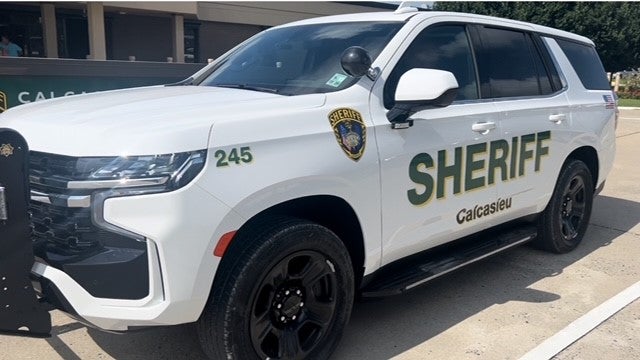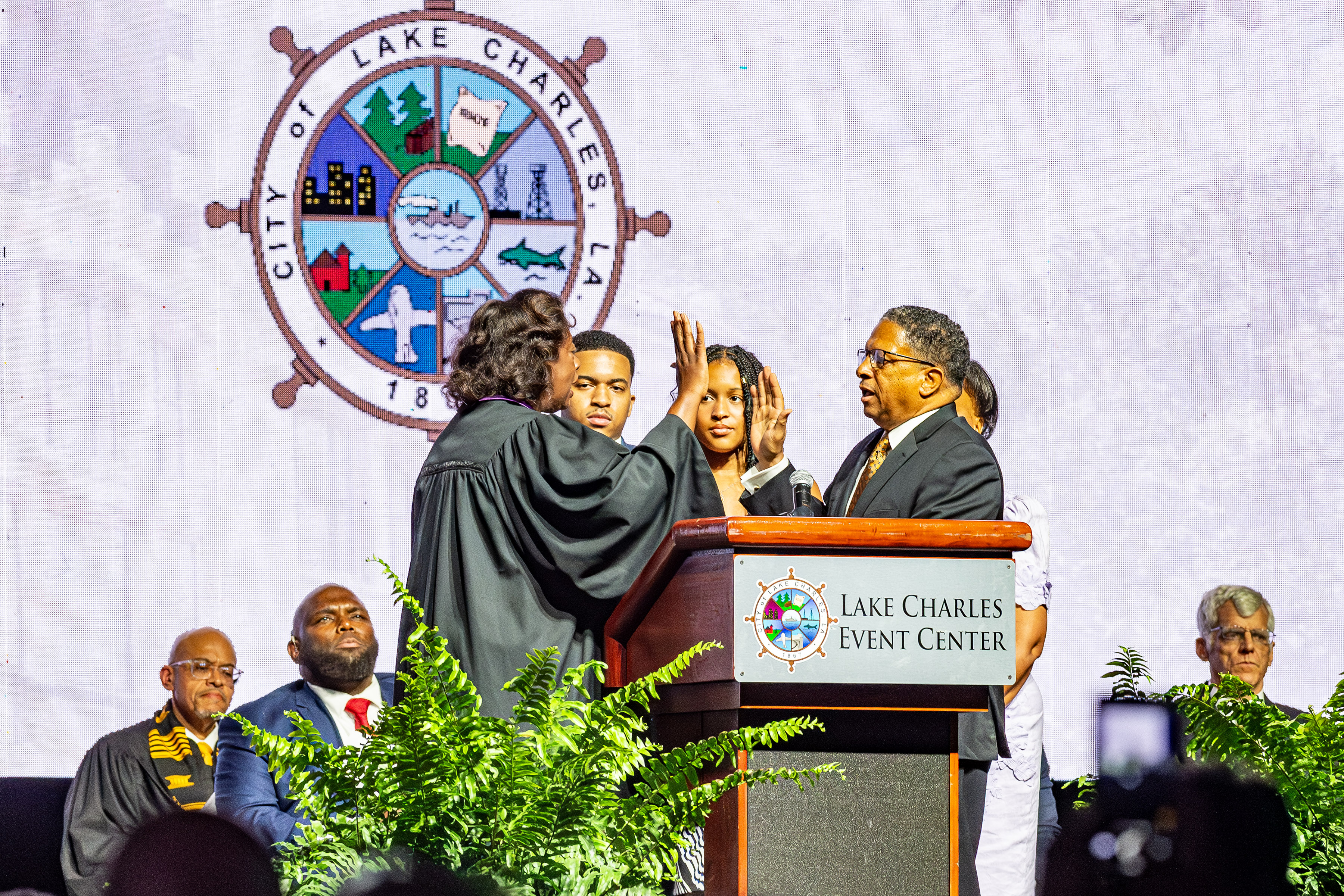Home is where the family is
Published 6:51 pm Sunday, August 6, 2017
Lillian Cooper Karr of DeQuincy, doesn’t think home is about the walls around you and the roof above you. Home, to her, is where family is. Her memories of growing up in Merryville are tethered to a store no longer in business: Slaydon’s. It was the place to hear the latest news and where local people could find everything they needed without driving out of town.
“I was born in that store,” Lillian said.
Her maternal grandparents— Cullen E. “Buddy” Sr. (January 28, 1896-February 28, 1984) and Ethel Hammond Slaydon (December 4, 1895-May 25, 1979) were the owners.
“I called them Granny and Pappy,” Lillian said.
So did their customers.
“It was only natural that I was born in the store,” Lillian said. “That’s where Pappy and Granny were living. Mama wanted Granny to be with her when she had me, and that’s where Granny wanted her to be.”
These were the days when the doctor came to the home to treat patients and deliver babies.
The store was built in 1928 and remained open until 2003, with the exception of a few months at the height of the Great Depression.
Merryville was a prosperous, thriving town before the depression, after the establishment of Fort Polk and through the mid-1960s, according to Lillian.
In the 1930s, the Merryville Kirby Mill closed.
“Everyone kept saying it was going to reopen,” Lillian said. “At first, it was going to be back in operation in a couple of weeks, then a month and on and on. But it never re-opened.”
Pappy had extended credit. The bank took the house where the Slaydons, Granny and Pappy, were living at that time.
“Granny paid a visit to Britt Nichols, Pappy’s uncle, Lillian said.
She borrowed the money to put the store back into business, and the store became home. Zoe Slaydon recalled the amount borrowed was about $300 and how it took a while for Pappy and Granny to pay it back.
“Every week they’d send Mary Helen— that was their youngest girl —through the old mill yard to pay,” Zoe said.
The store was enlarged in 1963 and again in 1984. Original merchandise in the general store included hoop cheese, canned goods and wooden bins of dried beans. In the 40s, feed, fertilizer and hardware was added.
“I remember Pappy would deliver groceries at no additional charge and allowed certain customers to put their purchases on a list and pay at the end of the month —interest free —through the 1970s. They accepted eggs for barter until the store closed in 2003. They cashed paychecks.
“The bank closed earlier than we did and they wouldn’t cash a check unless you had an account there,” Zoe explained.
The store was never robbed. It closed at 8 p.m. Zoe and Lillian remembered stories of customers beating on Pappy and Granny’s door after closing because they needed coal oil. Mothers and fathers that asked them to open the store early said their babies needed milk.
“I remember when Granny added dry goods, hats and fabric,” Lilllian said.
Smilin’ Jack cookies were two for a penny. Candy bars were five cents.
In the 1960s, Slaydon’s began to sell fresh-cut meat to order, and customers drove from surrounding communities to purchase it.
Though the Slaydons worked long hours, it wasn’t all work. Lillian said some of her favorite childhood memories are those of extended family get-togethers.
“When Pappy got a TV, I remember he would pick us all up and we’d go over there to watch Hit Parade and The 64,000 Question,” Lillian said. “He would pop popcorn for us.”
At one time there was a traveling skating rink and movie theatre in Merryville. The Slaydons loved to go.
“Every time a new movie came out, Pappy was there,” Lillian said. “On Sundays after church, we went swimming at Anacoco Creek, granny included. She was a little bitty feisty woman. If the car rolled, Granny was in it.”
Cullen E. “Buddy” Sr. and Ethel Slaydon had four children. All are deceased. “Toonsie” was the oldest. Her name was Joyce Neahwassah Slaydon (Grant).
“Pappy was reading a book, and it had Indian characters in it,” Lillian said to explain the unusual middle name. “He was the only one to ever call her that. I guess he thought he should since he was the one who saddled her with the name.”
Lillian’s mother, Gussie, was the second born. She married Lillian’s father, Louis Cooper, Jr. Mary Helen Slaydon (Smith) was the youngest girl. Buddy Jr. was the baby of the family. He and Zoe ran the store after Buddy Sr., finally retired. Buddy Jr. and Zoe worked long hours and were considered aheadof-their time with promotions and value-added service. Zoe continues to be asked when she will reopen Slaydon’s.
This photo is a drawing of the original store now in the home of Zoe Slaydon. Zoe and her husband, Buddy Jr., ran the store after the retirement of Buddy, Sr. and Ethel Slaydon. (Special to the American Press)
Photo by Rita LeBleu
The original houses built by the Kirby Sawmill for their workers have been updated over the years, but still remain, including these two. Lillian’s husband, Jim Karr, grew up in the one on the corner. (Photo by Rita LeBleu)





